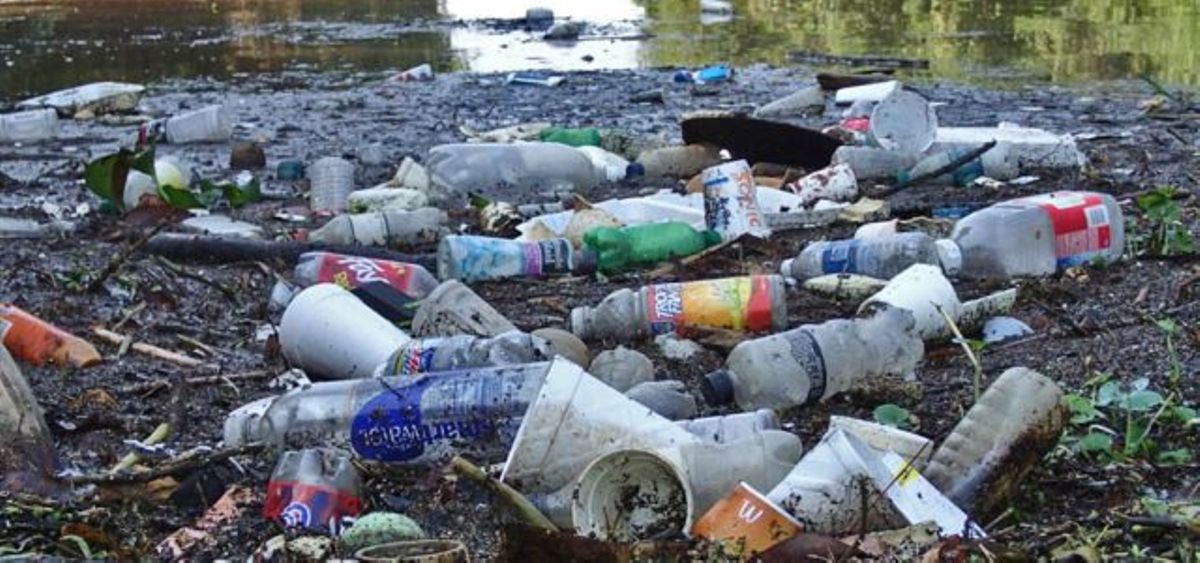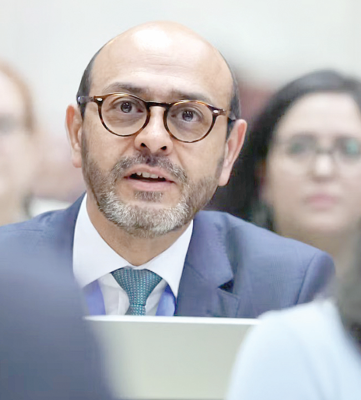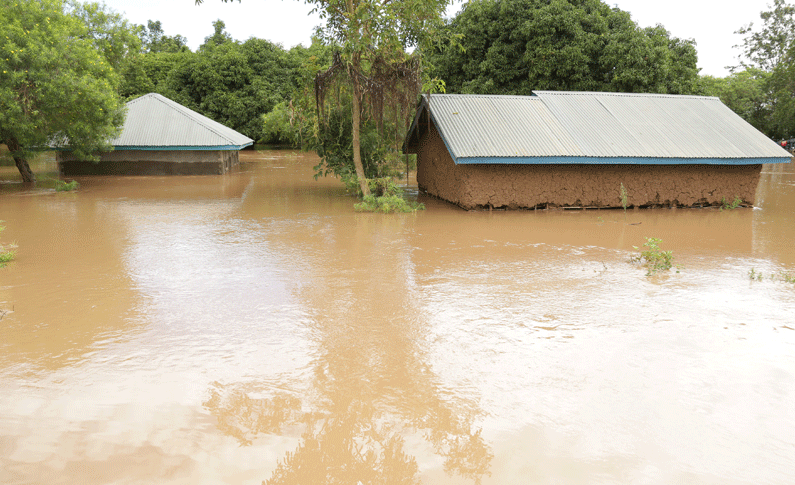Innovative approaches needed to end plastic pollution menace

Life without plastic is unthinkable. The material has become the most common material over the past 100 years and going one day without an encounter with it in any form is almost impossible. However, what makes it so useful, such as its long-lasting nature, lightweight and low cost, also makes it troublesome when it comes to its end of life due to its non-biodegradable nature.
In Kenya, an average of 2,000 tonnes of plastic objects are imported or produced every day, with 100 tons of related wastes ending up in rivers and the Indian Ocean. Plastic waste is now the biggest challenge to solid waste management in the country.
In 2020, when the Covid-19 pandemic struck, countries across the globe reported a tripling in plastic waste due to the high production and consumption of single-use plastics and Personal Protective Equipment (FPE), such as gloves, masks and sanitiser bottles and online delivery packaging and has become a major environmental issue, adding to an already growing plastics problem.
In Mombasa County, an increase in waste volumes has been recorded, although there is a lack of a waste management data system, which deters proper tracking and analysis. Incineration facilities for treating waste from health facilities, which use the FPEs in large numbers have been overwhelmed and part of the waste is ending up in the municipal waste stream.
Speaking recently during a dialogue on unpacking the resolution to end plastic pollution, which was adopted by United Nations Environment Assembly (UNEA) in February this year in Nairobi, conservationists agreed that plastic pollution is a problem, which cannot be ignored anymore and needs concerted efforts from all the stakeholders to find a lasting solution to end the problem.
Ocean debris
“Plastic production and pollution require concerted efforts from everyone because the impact of this crisis is putting pressure on the planet, which is linked to the climate change and food crisis that we are currently experiencing,” noted Joachim Paul, Heinrich Böll Stiftung (hbs) Nairobi Office director.
According to the United Nations Environment Programme (UNEP) over 400 million tonnes of plastic are produced each year, with half of that amount used to create single-use items, such as shopping bags, cups and straws. At least 14 million tonness of plastic end up in the ocean every year. Plastic debris is now the most abundant type of litter in the ocean, accounting for 80 per cent of all marine debris discovered from surface waters to deep-sea sediments.
In Nairobi, for example, 2,400 tons of solid waste is estimated to be generated every day, 20 per cent of that being in plastic form. Programme Coordinator, Sustainable Development at hbs, Fredrick Njau urged policymakers not to allow the country to be used as a dumping ground for plastic waste by developed nations through trade agreements.
“About 400 million tons of plastic is produced annually and only less than 10 per cent is recycled. Plastics take over 400 years to degrade, which is dangerous to the environment, humans and animals,” said Njau.
A recent study by Greenpeace International showed that Fast Moving Consumer Goods (FMCG) corporations are a predominant force behind the throwaway economic model driving the plastic pollution crisis. The reason is, that single-use packaging is the main delivery system used by all FMCG companies.
Recognising its role in polluting the environment a Swiss multinational food and drink processing conglomerate Nestlé in Kenya and one of the corporations that are considered to be “top polluters” launched a RE sustainability initiative in Kenya. “As the climate changes, so does the global availability of a healthy environment for us and, especially for the generation becomes bleak. It is our responsibility, especially as business leaders to mitigate the effects of climate change through our business operations,” said Ngéntu Njeru, Nestlé Kenya’s Managing Director, while launching a school plastic collection programme in the country to create awareness of the circular economy and the part each Kenyan can play to protect the environment. “The impacts are apparent at a local level, with those in vulnerable societies feeling it most,” he added.
Launched in partnership with the National Environment Management Authority (Nema), Kenya Extended Producer Responsibility Organisation (Kepro), and The Ministry of Education, the initiative dubbed the RE Sustainability Initiative is expected to see thousands of tonnes of plastic waste collected and recycled in Nairobi before expanding to other counties.
The initiative will revolve around three important pillars; Rethink, Reduce, and Repurpose and will hold Nestlé accountable for minimising its environmental footprint as it aims to make a positive change in sustainability and circular economy. “The involvement of the schools in this initiative is an important element, to ensure that the community can be efficient and self-reliant in protecting the environment, which is key to sustainability and ensuring the long-term impact of this initiative. All kinds of plastics will be collected and recycled,” he said.
They will also be encouraging upcycling and reusing of materials to ensure that most people understand circular economy business models and projects.
Full lifecycle of plastics
“Circular economy principles represent a waste-free future. A future where businesses have moved from a linear economy to one that is truly circular. There is a powerful opportunity to apply these principles to business models,” said Saint-Francis Tohlang, Corporate Communications and Public Affairs Director at Nestlé East and Southern Africa Region (ESAR).
Amos Wemanya of Africa’s Power Shift, while commending Nestle for its efforts, however, said recycling will in no way guarantee us a plastic-free world. What such companies need to do is to ensure that they look for alternatives for their packaging and completely stop the usage of single-use plastics not only at the country level, but across the world.
“Plastic pollution has continued to suffocate aquatic life, humans, and the entire environment. For us to address this plastic pollution crisis there is a need for an internationally binding agreement because plastics know no boundary,” said Wemanya.
He said there is a need to come up with a resolution that addresses the full lifecycle of plastic, including production, design, and disposal if we want to win this war.
The February UNEA-5.2 meeting agreed to develop a treaty designed to bring an end to the scourge of plastic pollution.
The resolution dubbed End Plastic Pollution: Towards An Internationally Legally Binding Instrument is hoped to address the growing problem of plastic waste in the world’s oceans, rivers, and landscapes.
Wemanya says that this treaty is needed because the plastic pollution crisis is beyond the ability of any one country, region or sector, and requires an international response. According to him, preventing plastic pollution will require a dedicated global framework that builds upon and complements existing national and regional initiatives while addressing the significant gaps that prevent countries from eliminating plastic pollution.









